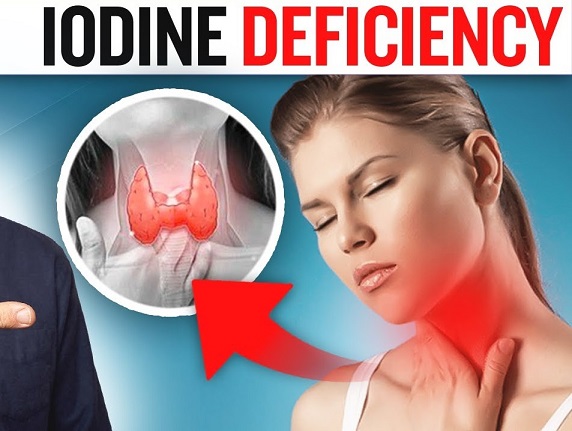Last Updated on December 22, 2024 4:15 pm by INDIAN AWAAZ

Dr Abdul Hamid Zargar
Iodine deficiency disorders (IDD) refer to the ill effects of iodine deficiency in a population that can be prevented by ensuring an adequate iodine intake.
Iodine deficiency impacts physical growth as well as brain development. It can cause Goiter, Cretinism, spontaneous abortions, stillbirths, congenital disabilities, speech and hearing defects, squint, psychomotor defects, lower IQ, and mental handicap.
About 30% of children in India are born in geographical areas where iodine deficiency is common. Approximately 30-70% of these children develop a loss of energy and hypothyroidism. Iodine deficiency is preventive.
Rock salt, which does not contain iodine, was primarily consumed earlier in the northern hills. Iodine deficiency is most prevalent in north and north-eastern India. The government banned non-iodized salt in Jammu and Kashmir. However, this was implemented much later. The government made it mandatory that only iodized salt be distributed.
IDD in Jammu and Kashmir rose more than twofold between 1995 and 2009. In 2009, the goiter prevalence was the highest in Pulwama and the lowest in Srinagar. Further, Himachal Pradesh has been known to be endemic for IDD since 1956.
IDD treatment and preventive measures should be frequently monitored. The International Council for Control of Iodine Deficiency Disorders (ICCIDD), supported by the WHO and UNICEF and with 700 multidisciplinary professionals from more than 100 countries, is committed to providing technical assistance to national programs for IDD elimination (1986).
The WHO Universal Salt Iodization (USI) policy has been widely adopted. It requires the iodization of all food for human and animal consumption through iodized salt (25-40 mg l/kilo) intake.
Thyroid hormone is essential for normal somatic and neurological development. Iodine deficiency leads to thyroid hormone deficiency at critical periods of brain development that leads to irreversible neurological damage. Prevention of iodine deficiency is essential.
Dr Abdul Hamid Zargar is Endocrinologist, Centre for Diabetes and Endocrine Care, Srinagar, Jammu & Kashmir, India
